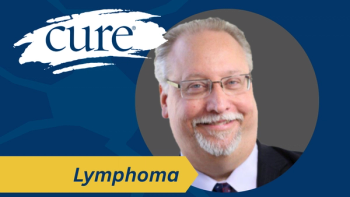
Firsthand Experience With CAR T-Cell Therapy
In this episode, we spoke with a rare lymphoma survivor on how chimeric antigen receptor T-cell therapy saved her life.
With the approval of the first
Following what was a stubborn cough and many misdiagnoses, Caitlin Buchanan was told she had primary mediastinal diffuse large B-cell
In this week’s episode of “CURE® Talks Cancer,” Caitlin — who is now cancer-free – talked about her diagnosis, the shock of being told she had cancer and how CAR T-cell therapy changed her life.




